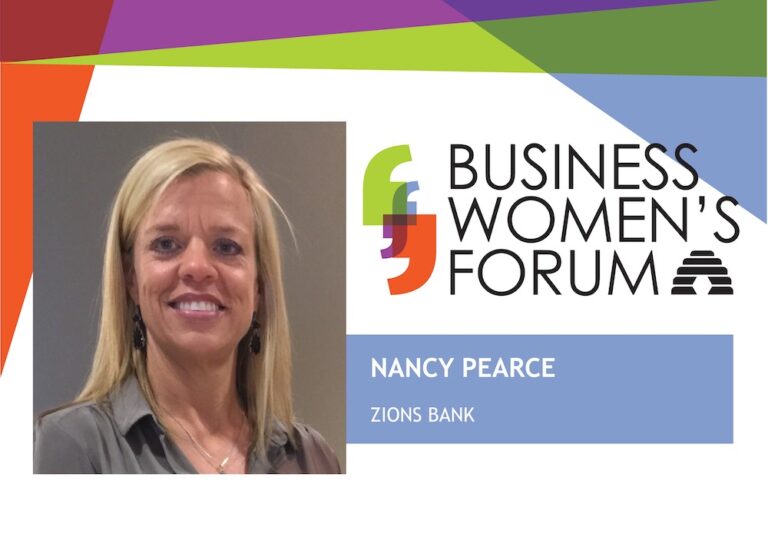Several months ago, I had a service visit from my boss, the Regional Manager, and his boss to observe the standards of services of my team. The two started their observation with our morning huddle, which I, as the store manager, was responsible for facilitating. I began our team meeting by welcoming everyone, introducing our guests, giving out recognition with specific examples and covering all the bank priorities. I created a high-energy, engaging, motivating and positive meeting that pumped up the team for a productive day of work.
After the meeting, my two superiors shared how impressed they were with me and that it was one of the best huddles they had observed. They shared their struggles in getting other managers to feel confident in motivating their teams in the same way. They asked if I did the meetings every day. Immediately, I felt a rush of inadequacy flood through me. Even though my assistant manager and I did strive to do them weekly, I replied shamefully, ‘No.’ Rather than share our weekly consistency or that we were working towards offering them more frequently, I simply said ‘No.’ In the moment that I was being recognized by my superiors, all I could think about was how I could have done it better. In the process I made myself look less confident in my position.
Later on, my manager asked me why I consistently sell myself short in my own strengths and accomplishments. It really caught me by surprise because it was something that I previously wasn’t even aware of in myself. Why DID I do that? Certainly, this wasn’t the first time something like this had happened. Was this a reflection of my confidence, my inner power, my worthiness?
In my curiosity about where these beliefs and behaviors came from, I realized that I was not alone. There are so many other women who have disproportionately experienced moments of powerlessness in the workplace and the world. Women have learned to make themselves small so as to not take up too much space. We have devalued our worth in front of others, apologized for being too much or too little, changed who we were in an attempt to fit in, chose not to apply for our dream position because we didn’t think we were good enough, or maybe felt it necessary to question someone else’s qualifications in order to boost our own lack of confidence and worth. We’ve been told how to look, how to behave, what jobs we can and cannot do, and that we must suppress our feelings so as to not be too emotional and appear weak.
These are not symptoms of women not being powerful or capable but rather are reflections of deep conditioning from current power structures who attain their power by taking it away from others. Patriarchy is one of the most oppressive structures that actively seeks to strip the power away from so many women. In the current Patriarchal system, power is used to dominate, force, and control others for the benefit of a few. But this is not true power. We cannot create power by taking it away from others.
According to the Oxford dictionary, Power is “the ability to do something or act in a particular way, especially as a faculty or quality.” True power is actually only possible when we can create it within ourselves. It is achieved when we are able to use our power and influence to empower each other in recognition that we are so much stronger together than we are divided. Power starts from the inside out.
A book that recently shifted the way that I perceive power is called POWER: A Woman’s Guide to Living and Leading without Apology by Kemi Nekvapil. In her book, Nekvapil shares that these subconscious beliefs that we have around power create a narrative that A) We don’t have power and B) That power is something that we do not want.
Power does not belong to the chosen few. Power belongs to us all and it is up to each of us to do the work to shift our current perceptions in order to create greater freedom and opportunity for ourselves as well as greater balance in our communities and world.
She uses the acronym P.O.W.E.R to redefine our current conditioning around the concept.
- P – Presence: To be aware in the moment, our presence dictates our ability to connect with ourselves and others. When we are present, we are able to more mindfully respond rather than react. We are self aware of how we show up and how our behaviors impact others.
- O – Ownership: The ability to own who we have been and who we are becoming. This means having the discernment to know what is ours and what is someone else’s. We are not victims of circumstance yet we get to choose how we respond to the situations that we are given.
- W – Wisdom: We all have the inner wisdom that has the power to direct us through our lives. All too often we give that power away, but if we learn to trust ourselves, our innate wisdom will lead us.
- E – Equality: We all have a role to play in shaping global equality. In seeking it for others that have less than us. We also have a role to play in owning the equality that sits within us.
- R – Responsibility: When we take responsibility for what needs to change, things change. By taking responsibility for ourselves we have the freedom to decide how we use our power.
In this redefining of power, we open the door for each individual to claim their birthright of owning their own power. By recognizing that it is something that starts within, we recognize that each of us has a responsibility not only to ourselves to create greater freedom and opportunity in our lives but also that we have a moral obligation to our communities to create greater balance in our world.
It is time for a new paradigm to emerge. It is time that each individual receives the same pay, benefits and treatment for the same work regardless of gender, race, sexuality, socioeconomic status or physical ability. It is time that women feel free to be powerful in the workplace without fear of being too much or too little. It is time that women feel free to work in collaboration rather than competition with other women without fear of limited space for women in the workplace. It is time that women are celebrated for their feminine qualities such as emotion, compassion, nurturance, togetherness, and support of one another. It is time that each individual has the freedom to express their most authentic truth and power in the world. It all begins with each individual woman claiming their power.
Here I will take this opportunity to reclaim my worth and deservingness to take up space in the world with a declaration that each woman deserves to express freely and unapologetically in the world: I am not going to apologize. I am worthy of receiving compliments and respect from my peers and superiors. I am beautiful. I am smart. I am strong. I have unique gifts that are needed in the world. I am human and I will make mistakes and that’s ok. I will give myself grace and compassion to learn from these mistakes. I give myself permission to be myself. I love and appreciate myself just as I am.
We are powerful. We each have unique gifts to offer the world. We can all stand in power together. We can celebrate and honor the experiences without feeling like it takes away from our own. Women deserve to believe in themselves. Women deserve to claim their power.
About the Writer: Nancy Pearce
Nancy Pearce is responsible for and oversees all of the operations at her Zion’s Bank retail branch. She is also responsible for the coaching, development of her team members and business lending. Prior to Zion’s she worked for Wells Fargo Bank for 11 years. She has an associate’s degree from LDS Business College and took additional classes in psychology at Salt Lake Community College and the University of Utah. In her free time she loves to spend time with her children, spend time outdoors, work in the yard, hike, boating, tubing, skiing etc. She also loves to travel when she can.



